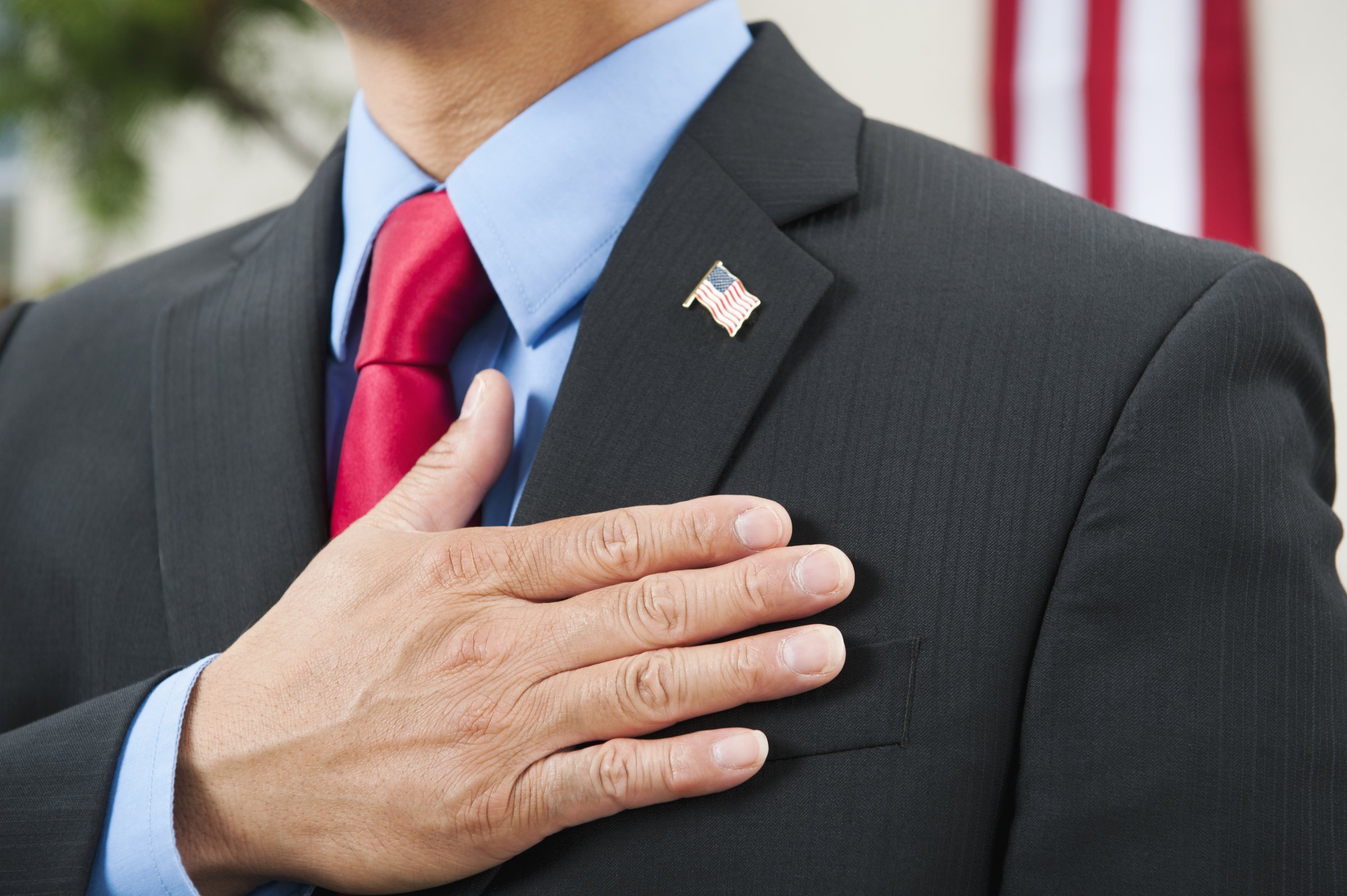
It took the threat of a lawsuit before the Air Force agreed on Wednesday to allow airmen to omit the phrase “So help me God” as part of a required oath. Until then, they claimed an airman stationed at Creech Air Force Base in Nevada was ineligible to re-enlist after he crossed out the phrase on his re-enlistment form.
This controversy will rile up many people of good will—not against the military, but against the airman. Why make a big deal out of words that the majority of Americans believe in? Just cross your fingers if you must and say the words. Why rock the boat?
Here’s why: the incident betrays a subtext of intolerance and hostility toward secular people that is embedded in American culture and public institutions. The Air Force was ready to end a man’s military career because he would not submit to its religious demands.
To secular Americans, requiring an oath to God is like asking a Jewish airman to swear, “So help me Jesus,” or asking a Christian to say, “So help me Allah.”
The objection to forcing the oath on nonbelievers should be obvious. It’s not.
But a new campaign is hoping to change all that. Openly Secular, launching today, is a new coalition of more than two dozen secular groups—one of the largest of its kind—coming together with the goal of raising awareness of the numbers of nonreligious people in the country. We include not only atheists and agnostics, but our allied organizations include religious people of many denominations who cherish the Founding Fathers’ ideal of church-state separation.
Secular Americans make up a huge and growing stratum of society. Atheists, agnostics, humanists, freethinkers and the nonreligious make up 20% of Americans overall and fully a third of millennials under 30 years old. But until secular people come forward and introduce themselves, the misconceptions marginalizing them will persist.
The polls are pretty startling. A Pew poll this year found that nearly half of Americans say it’s necessary to believe in God to be a moral person. Another recent poll found Americans would rather vote for an adulterous or pot-smoking candidate for President than one who is an atheist.
Many religious Americans would be startled to discover how many nonbelievers they already know and like. Too many religious Americans are convinced they can’t trust people who don’t subscribe to a faith. The truth is, they are constantly trusting nonbelievers; they just don’t realize it.
Secular people are not just academics and scientists—although most academics and 93% of members of the National Academy of Sciences are nonbelievers. Secular people are in police departments protecting streets from crime. They are taxi drivers, waiters, shopkeepers. They are doctors and nurses treating the sick. And they are serving in the military, putting their lives on the line to protect the country.
Watch the videos on OpenlySecular.org to see average, hardworking Americans come forward and talk about their lives as nonbelievers.
The Openly Secular coalition hopes to eliminate the social costs of coming forward. It is lamentable that people fear they are risking their jobs, businesses and personal relationships, simply through being true to who they are.
One day soon, the stigma and disdain will be so diminished that allowing an airman to re-enlist in the Air Force without swearing to a deity he doesn’t believe in won’t have to become a federal case.
Richard Dawkins is an evolutionary biologist and internationally best-selling author. He has published eleven books, all still in print, including The Selfish Gene, the blockbuster The God Delusion, and his magnum opus The Ancestor’s Tale. Dawkins is a fellow of both the Royal Society and the Royal Society of Literature. He was the inaugural holder of the Simonyi Chair for the Public Understanding of Science at Oxford University and is the Prize of Japan.
Robyn Blumner is the executive director of the Richard Dawkins Foundation for Reason and Science in Washington, D.C. She was a nationally syndicated columnist and editorial writer at the Tampa Bay Times newspaper (formerly the St. Petersburg Times), where she was a finalist for a Pulitzer Prize with colleagues. Blumner was executive director of the American Civil Liberties Union of Florida and of the ACLU of Utah.
More Must-Reads from TIME
- Donald Trump Is TIME's 2024 Person of the Year
- Why We Chose Trump as Person of the Year
- Is Intermittent Fasting Good or Bad for You?
- The 100 Must-Read Books of 2024
- The 20 Best Christmas TV Episodes
- Column: If Optimism Feels Ridiculous Now, Try Hope
- The Future of Climate Action Is Trade Policy
- Merle Bombardieri Is Helping People Make the Baby Decision
Contact us at letters@time.com